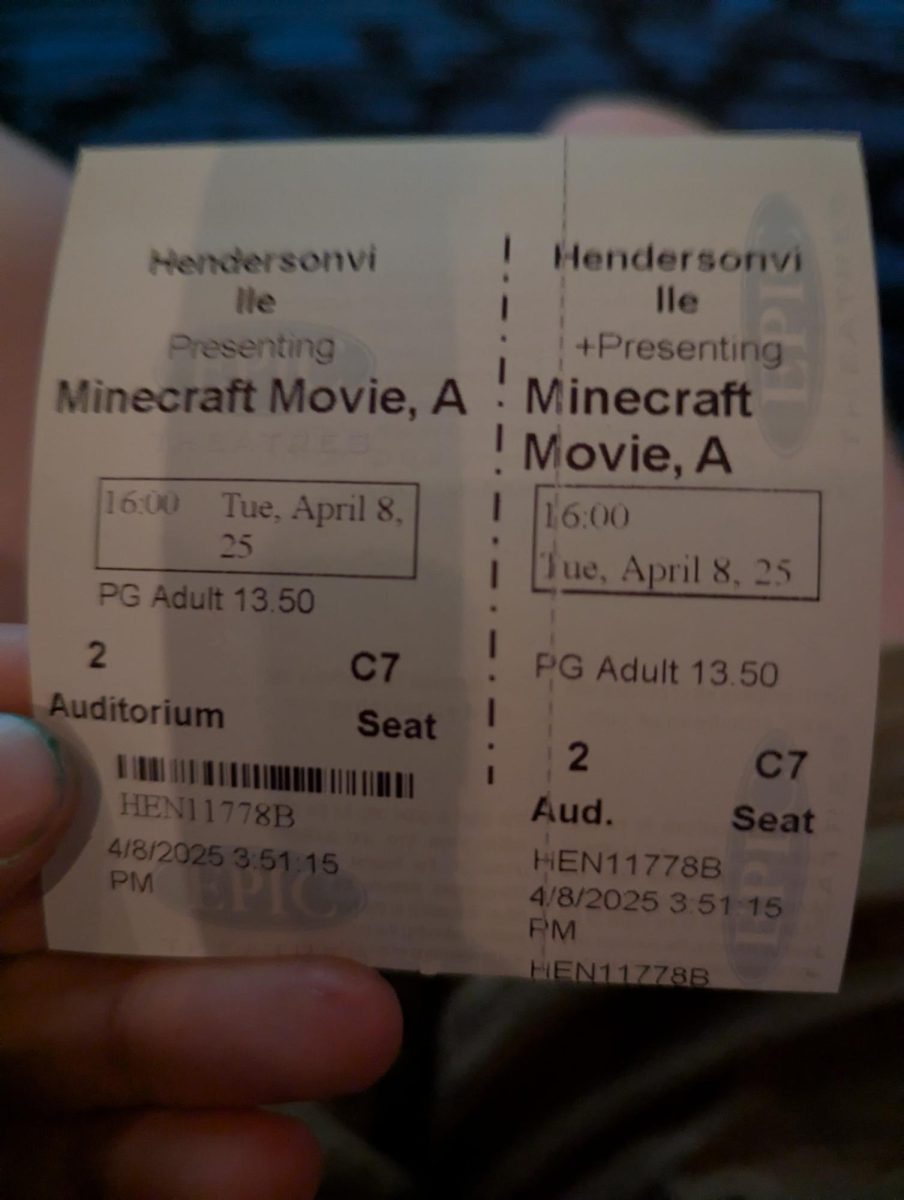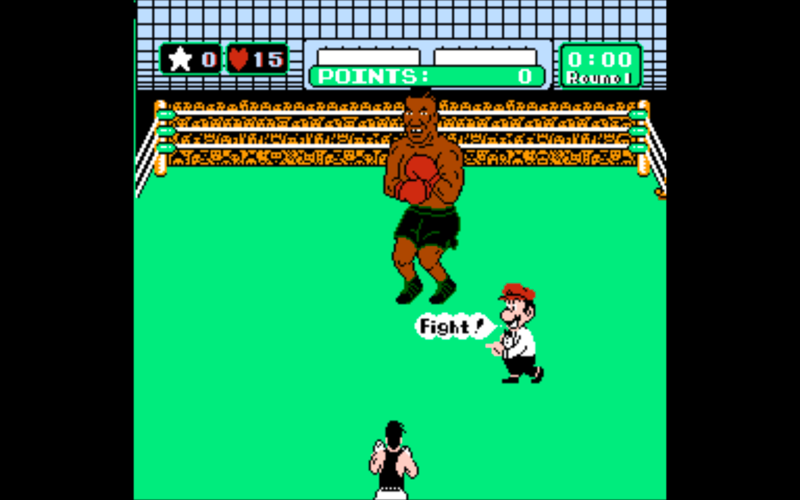Picture him: Tim Allen, the actor and comedian famous for Home Improvement and movies like Toy Story and The Santa Clause.
Picture her: Jamie Lee Curtis, the actress known throughout Hollywood for her acting skills in the Halloween franchise and, more recently, her Best Supporting Actress Oscar-winning role in Everything Everywhere All At Once.
Now try to picture them as a middle-aged couple costarring in a lighthearted (and, at times, downright silly) holiday comedy.
Starring Allen and Curtis as Luther and Nora Krank, a middle-class couple from the Chicago suburbs, Kranks tells the unique story of a couple who try to avoid the holiday season to instead save their money for a cruise. Plagued by empty nest syndrome after their only daughter, Blair, leaves for a Peace Corps mission in Peru, Luther convinces Nora to go along with his tropical seafaring scheme – with the condition that the two don’t spend any money on Christmas festivities whatsoever.
The Kranks’ tight-knit community swiftly takes issue, concerned over why their beloved neighbors are suddenly skipping out on all of the usual traditions and rejecting every seller of Christmas trees, calendars and even local church carolers that show up on the block. At first, Luther and Nora remain steadfast – but when on Christmas Eve, Blair calls from the airport in Miami to tell her parents she’s making a surprise visit for the holiday, the two scramble to hide their plans and work to make Christmas just how Blair always expects it to be.
The movie, based on the 2001 novel Skipping Christmas by John Grisham, is at times hilarious, witty and heartwarming – but that barely scratches the surface of the Kranks rabbit hole.
Here’s where things get weird.
The rest of this article contains spoilers.
Kranks is, without a doubt, a cult classic beloved by a select few – but beneath its Christmastime veil is a downright bizarre story of societal conformity, mob mentality, magic, crime, disease, death, and even psychological and supernatural horror.
The movie opens with the Kranks dropping Blair off at the airport, then stopping at the grocery store on the way home where Luther, after much tedious middle-aged bickering about peculiarities from the tranquility of their car, goes out into the pouring rain without an umbrella. He returns, soaking wet from the rain, with a bag of groceries, but forgot the number one thing he went in there for – white chocolate!
“They didn’t have any” is the excuse he makes, to which Nora responds, “Did you talk to Rex?.”
“Who’s Rex?” Luther replies.
“The butcher.”
“As odd as it sounds, I didn’t think of asking the butcher where the chocolate was. [long pause] But I will.”
That is not exaggerated – word for word, it’s the interaction the movie chooses to help us get to know the characters. Before he goes back out into the pouring rain, Luther says: “I’ll go talk to Rex right now. Maybe he’ll wonder why I’m all wet.” An insanely unnecessary comment, it’s moments like these that set up the hokey, goofy tone that exists at the surface level throughout the movie – and make it all the more difficult to consciously ponder the utter absurdity of the many events that follow. Because of how everything about the movie sets itself up, it’s almost possible to completely gloss over the underlying motifs and themes – but when you look closely, they emerge, and ‘strange’ doesn’t even begin to cover it.

As the Kranks hatch their scheme to avoid Christmas and spend their money on a cruise, they’re forced to make certain decisions in line with this ideology. The couple’s agreement is that the only holiday spending permitted is their yearly charitable donation. Luther marches forward with fervency, handing out letterheaded flyers to everyone at his office to inform them that he won’t be participating in any Christmas festivities, nor giving or accepting gifts – totally the normal thing to do. Nora, in contrast, takes a much quieter approach, feeling embarrassed to say ‘no’ when local friends, acquaintances and even store workers begin to ask her about her annual Christmas Eve party invitations and Christmas cards. When she begins to explain the plan to “not do” Christmas, her friends react with shock and confusion: as one character questions, “How do you simply not do Christmas?”
While time goes on, the Kranks’ ambitions become increasingly known to their neighbors. They are given looks of judgment in public and gossiped about by their neighbors – but the true turning point comes when Luther refuses to buy a tree from the Boy Scouts, triggering the involvement of “unelected ward boss of the street” (as described by Nora) Vic Frohmeyer (played by Dan Aykroyd). As the neighborhood, including the neighbors’ children, turn increasingly against the Kranks, they become increasingly resilient, with Luther going so far as to ice his own front lawn as to discourage anyone from “trespassing” (and nearly injuring neighbors as well as his own wife as a result.)
Taking a step back, the utter insanity of this situation presents itself. The Kranks – a regular couple living in the American suburbs – are being demonized by their neighbors for trying to skip Christmas, harassed and annoyed on the daily with people knocking on their door and with prank phone calls. In some sort of ridiculous callback to the Red Scare and McCarthyism, the Kranks are persecuted and vilified for a personal choice about one holiday in one random year. The entire town – friends, neighbors, store workers, vendors – seems to be against the Kranks, wanting to force them into celebrating Christmas in the traditional way that they had in years passed.
As time continues to pass, another plot point comes up: the “ridiculous, seven-foot-tall, snowman.” Through some ridiculous, cultish circumstance, every house on the block owns the same Frosty the Snowman, and every Frosty goes on every house’s roof for the holidays every year. The neighbors, wanting to win a barely-mentioned award for best-decorated street, repeatedly admonish the Kranks to put Frosty up, with local kids gathering on their lawn to chant “free Frosty!” on a daily basis and making repeated phone calls to the Krank residence. Again, a bizarre insistence on conformity, and this one begins to take its toll on Nora, who panics and stresses over the obsessiveness of the neighbors, while Luther remains calm and nonchalant. Vic Froymeyer takes a particular interest in Frosty, even offering to put him on the Kranks’ roof for them, much to Luther’s irritation.
Perhaps the single most bizarre scene in the entire film comes when Vic, his son Spike, and a bunch of random neighbors and kids come onto the Kranks lawn while Luther is at work – Nora calls Luther in a panic, who tells her that if she’s afraid, she should simply “walk to the garage, get in the car, start it, drive to the mall, I’ll meet you at O’Leary’s.” The call is hung up – and queue piano music befitting a horror movie as Nora silently rushes through the house, actress Curtis checking around corners as if once again evading Michael Myers. Nora drives down her driveaway and away as anonymously as she can – but one random neighbor declares “Vic, she’s leaving!,” distracting Nora as she nearly runs into a Frosty statue in front of her. As she resumes driving, Vic Froymeyer suddenly appears in her driver’s side window, running faster and faster with his black-gloved hands tightened around the glass as she speeds up to evade him – desperate, Nora closes her window, and Vic’s fingers are crushed – he breaks free, leaving behind his black gloves in the window – Nora lets out a blood-curdling scream as she looks back at the glass and sees them suspended there.
In the most ridiculous culmination of everything which precedes it, this scene is perhaps the best example of Christmas with the Kranks being far from what it seems. Nora displays real stress and seems to be at least temporarily traumatized by her escape from the house, all the while Luther continues to be laid back about their never-ending ordeal.
Also strange is the scene with the previously mentioned Christmas carolers – when a truck carrying carolers arrives on the Kranks’ street, a neighbor encourages them to set up on their lawn. Eating dinner, Nora and Luther suddenly hear “Jingle Bells” from right outside their door and are understandably startled – but they react even more ridiculously, with Luther dropping to the floor and pulling Nora down with him. The two then run and crawl to the other side of the house for a better vantage point at a window, discovering after some dramatic irony what the audience already knew, but somehow the Kranks couldn’t predict – the carolers. The tone of this scene brings with it the same considerations as the line from earlier, “Maybe he’ll wonder why I’m all wet.” Luther reacts with utter absurdity to obvious circumstances, perhaps in part because of the intended comedy of the movie, but also, based on the insanity of the movie’s underlying themes, who really knows?
The carolers, for that matter, go on for far longer than they need to, going into multiple nonstop choruses, getting faster and faster with each one, as some of the older neighbors look on with concern, disbelief and even fear at the mood of the crowd. Here, we see an interesting portrayal of mob mentality – the togetherness of the group encourages them to keep going in their musical harassment of the Kranks, despite the fact that none of them would have been individually likely to do so. This is further evidenced when the entire choir actually repositions to a different side of the Kranks’ house so that they can be staring directly at Nora and Luther through the window as they sing – in what comes across more than anything like a jump scare to the audience, as the move is revealed at the same time as the Kranks see them. Nora and Luther then escape to the supposed serenity of their basement – but who is there, staring at them next to the furnace, but the seven-foot-tall Frosty, staring at them with red eyes as the echoes of the choir can still be heard, muffled, through the walls, and the movie’s background score drifts slightly back into horror for a brief moment.
As mentioned, the Kranks eventually reverse course and scramble to get Christmas together once Blair surprises them by coming home for the holidays. When Luther finally tries to get Frosty onto the roof, the snowman, in a bit of supernatural horror, almost seems to become alive, and Luther pleads with it as he attempts to wrangle it into place – but he loses his footing and falls head first off the roof, saved only by a rope caught around his foot. When the neighbors come rushing to his aid, and wonder what happened, he quips, “Actually, it was a suicide attempt. Apparently, I misread the instructions.” This comment is obviously intended as a joke from Allen’s character, and yet, with the context of everything else going on in the movie, it comes off as exceptionally out of place. This is especially true given another of the movie’s underlying themes which we haven’t even yet touched: death.
Two of the Kranks’ closest neighbors, right across the street, are the Scheels: Walt, and Bev, who for years has been struggling on and off with cancer. It’s revealed midway through the movie that Bev’s cancer has again returned, and that this time there is no guarantee she will make it through more than one holiday season. Throughout the film, Bev’s illness provides a plot point to help juxtapose Nora’s continuous kindness towards her neighbors with Luther’s nonchalance and dismissal of everything except his ambition for a cruise. But within the supposed comedy of the film, this point is very serious – in fact, the final plot point of the film is not a humorous one, but rather Luther gifting his cruise tickets to Walt and Bev as he enjoys the company of his family, friends, and his newly-engaged daughter. Recognizing the ephemerality of life, Luther chooses to spend time with those he loves, and simultaneously does something kind for those who love each other and may be broken by a cruel disease – perhaps a way for Luther to achieve forgiveness for his actions?
This is likely the intended takeaway – but that takes us back to the original point: WHAT DOES LUTHER NEED TO BE FORGIVEN FOR?! Yes, he did ice his own driveway, which perhaps put others in danger; but otherwise, what did he do? Luther chose privately with his wife to skip out on Christmas: it was the vigilante-like persistence of everyone in his environment that brought about the Kranks’ downfall. The phrase “His judgement cometh and that right soon” comes readily to mind – Blair’s surprise return is likely intended to serve as a form of retribution at the Kranks for their actions; but again, what actions?! It’s like Miller’s Crucible all over again…normal people being chased after by a seemingly insane group of people in the name of total conformity and religious obedience.
And if you think this bizarre story of conformity, mob mentality and horror isn’t juxtaposed, paradoxical and oddball enough, what character does every Christmas movie just have to have? Santa.
One of the first characters introduced in the film is Marty – an umbrella salesman who stands outside the grocery store Luther initially shops in, trying to sell him an umbrella, while the stubborn Luther rejects the offer. Later, Nora runs into Marty in the store, where he recognizes her, knows about her usual Christmas Eve party and recites her street – but Nora doesn’t recognize him whatsoever. When he arrives at their party, he brings Hickory Honey Ham – Blair’s favorite – that Nora was unable to secure during the rush of the day, and despite Luther asking around, not a single person there can recognize him. Then, at the end of the film, he apprehends a criminal that tries to rob the Kranks during their party. There are two digressions to take here.
Firstly, the Hickory Honey Ham – a central plot point (yes, really) which the movie dedicates a not insignificant amount of runtime to. The food item is Blair’s favorite, so when she calls the Kranks and mentions it, the guilty Nora of course tries to go out and secure one – leading to perhaps the most famous scene from the movie: Nora and an anonymous shopper racing to get the last ham in the store. Nora loses. (Fun fact: Jamie Lee Curtis recognized the “shopper” years later in an interview with James Corden.) In a desperate bid to secure a ham, Nora then convinces a couple on line at the store to sell her their ham at an immense markup – Nora is so desperate that the argument she goes with is “it’s never too early to start thinking about putting away a little something for your child’s college education.” She ends up dropping the ham in the parking lot, where it rolls away onto the highway and is tragically lost forever.
Secondly, Kranks has yet another ridiculous subplot involving a criminal. When, after the Kranks reconcile with the neighbors in order to get their annual party together for Blair, Vic Frohmeyer enlists local police officers to pick up Blair and her fiancé from the airport. On the way back, the officers are told to stall for time, and make up a reported crime to ‘investigate.’ When they get there, they spot an actual burglar and apprehend him. Later, at the Kranks’, he convinces Spike Froymeyer to let him inside for a warm meal, making up a story about his nonexistent children. Spike agrees, and the criminal immediately goes upstairs to rob the Kranks – when he attempts to escape, that’s when Marty apprehends him. And of course, Marty is the real Santa Claus, because with the absurdity of the movie as a whole, why wouldn’t he be?
Wrapping Up
Suspense, horror, conformity and a bit of magic all play a role in this movie that presents itself as a lighthearted family comedy at the surface. And despite all of the wackiness within, (we need not mention the very real scene involving Nora, Luther, a mall tanning salon, and a priest; and yes, that’s real too,) Kranks manages to still deliver on being a lovable, community-rich Christmas movie.
That’s in large part thanks to the group that actually gets redemption in the film: not Luther, who hardly did wrong, but the neighbors, who, though misguided, all step in to help the Kranks when it turns out that Blair is coming home for Christmas. Vic Froymeyer’s famous question, “Why should the daughter pay for the sins of the father?” is certainly misguided, but ultimately it catalyzes the rest of the neighborhood into helping out and doing the right thing for the Kranks in the end.
Perhaps Luther was rude to many people throughout the movie, and perhaps his idea was as a whole out of place for the couple, but he’s certainly not the antagonist – if anything, he’s a Byronic hero. He’s smart but arrogant, going against traditional societal values to accomplish his goal in a self-destructive way. When everything backfires for him, he’s at his worst, but through the help of the protagonist Nora, he’s able to ultimately redeem himself and find happiness and resolution in the end.
So have a watch, it’s currently available on Amazon Prime, and let Kranks either amaze you into joining the ‘cult’ in cult classic – or watch it once and never again. Alternatively, just ponder what it would look like as a horror movie instead.









Christina Schwab • Dec 11, 2023 at 8:19 pm
Awesome article, loved it. So well written!